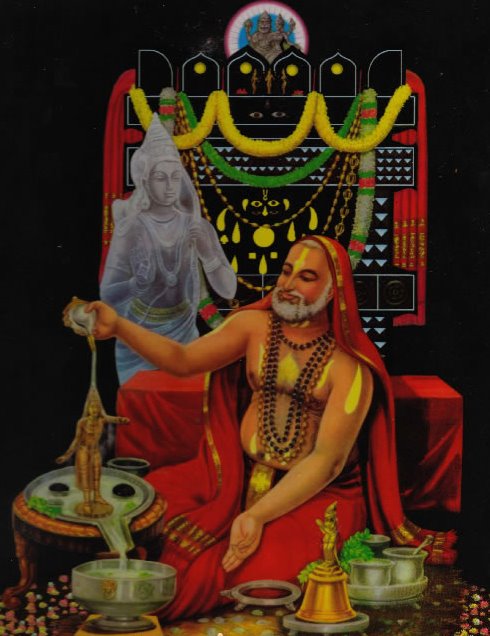Sri Guru Raghavendra
Sri Guru Raghavendra Thirtha was born in 1595 AD in southern India to humble parents, who gave him the name of Venkatanatha as an acknowledgement of their devotion to Lord Venkateswara. As a child Venakatanatha grew up at Kumbakonam under the watchful eyes of his guru Sudheendra Thirtha. As a young man he led normal household life, in poverty, served by his dutiful wife Saraswathim, through whom he had a son. But he continued to serve his guru, whom he succeeded as Swami Raghavendra Thirtha to become the head of the Mutt. Unable to bear the news of his renunciation, his wife said to have committed suicide. As the head of the Mutt, Raghavendra Tirtha performed many miracles and helped many people who became his devotees. During his life time he composed many important Vaishanvite works and propagated the Dwaita philosophy. He died at the age of 78 at Mantralayam, originally known as Manchala, near Adoni, in present day Andhra Pradesh, India. Sri Raghavendra continues to bless his devotees from his Samadhi which is now a famous pilgrimage center in Southern India and known as the Mantralayam temple to which rich and poor alike go to pay their homage.

